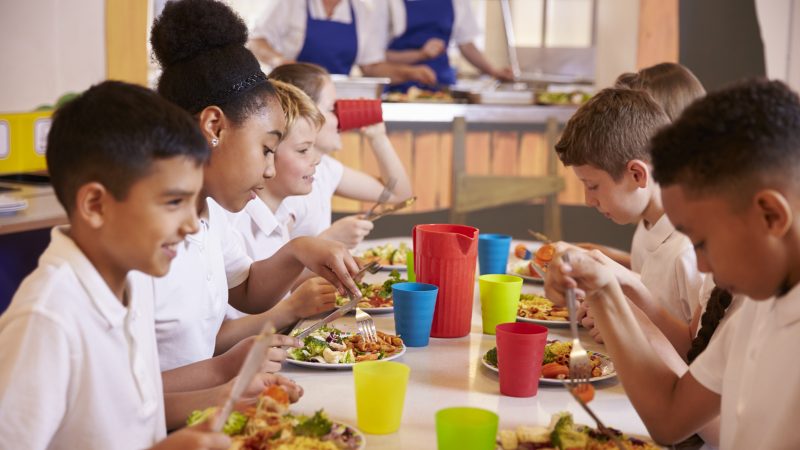
Labour’s decision to rule out introducing free school meals for all primary children has sparked a backlash from campaigners, but been welcomed by some experts supportive of more targeted anti-poverty measures.
London mayor Sadiq Khan announced plans to bring in universal free school meals for primary school students in the capital in February, and in Wales First Minister Mark Drakeford has set out longer-term plans for a similar programme. A push for Labour to adopt the policy at a national level has been backed recently by the National Education Union (NEU), the Communication Workers Union (CWU). Greater Manchester mayor Andy Burnham has also backed the policy.
Meanwhile the i reported yesterday that dozens of MPs from across the party were pushing the Labour leadership to adopt this policy. But less than a day later, a report in the Times quoted a source firmly stating the Labour line: “This is not Labour policy and we have no plans to implement it.”
The paper suggests party figures view other more targeted measures as more effective tackling poverty.
The announcement is likely to frustrate the MPs involved as well as campaign groups, however. It also comes in spite of a National Policy Forum event next month where it had been expected the proposal might at least be debated, after it was reportedly submitted by the CWU.
Kevin Courtney, joint general secretary of the NEU, told LabourList: “We continue to ask Labour and all other political parties to take on and deliver free school meals, and to make that a pledge at the election.”
He added: “Expanding free school meals for all primary school children is a way of ensuring all children receive a nutritious, hot meal every day, helping them focus on learning at school. Recent polling shows that the overwhelming majority of Labour members support the inclusion of free school meals in Labour’s manifesto, and it was passed as policy by last year’s Labour party conference.
“The implementation of free school meals for all primary school children by Sadiq Khan in London and by the Welsh government points the way forward.”
Labour MP Apsana Begum said she supported expanding the policy to ensure all primary pupils “get at least one nutritious meal a day”, and noted the measure was a 2019 manifesto commitment.
She said research and evidence was “clear” that free school meals boost public health as well as nurturing academic attainment and personal growth, with “urgent” action needed in constituencies like hers with high child poverty.
Campaign group Momentum hit out at the position too, saying universal free school meals are “a popular, urgent policy supported by Labour conference 2022, trade unions, members and the public”. It had urged members to submit motions previously on the issue.
However, free school meals campaigner Andy Jolley praised the decision, saying: “Rachel Reeves is absolutely right to take this highly regressive policy off the table.
“There are better ways to tackle the blight of poverty than spending vast sums feeding the children of middle and high earners. The benefits of universal free school meals are negligible, whilst the costs are huge.”
Meanwhile the Institute for Fiscal Studies, a widely respected non-partisan think tank, has previously highlighted the fact that making free school meals universal at primary schools would “only have a modest direct impact” on poorer children.
It said in a report earlier this year: “It would primarily directly benefit middle- and high-income households.”
But it added: “Of course, universal provision might have wider indirect benefits – for example, simplifying the system, easing administrative burdens or reducing stigma. All of this could boost take-up among children from low-income families who are currently eligible for free school meals.”
Brad Pearce, national chair of school catering industry body LACA, said: “With the ongoing economic crisis facing the country, too many children are going hungry, because they are not entitled to a free school meal, but their parents cannot afford a paid lunch. The school meals industry is in crisis with current hyper-food inflation, labour costs and recruitment challenges.
“We call upon all parties to have a grown-up conversation to secure funding which covers the cost of provision – food and labour – and how best to meet the needs of the most vulnerable children and young people. LACA firmly believe that that is best done through a freshly prepared, seasonal and nutritious hot school lunch”.




More from LabourList
‘Labour’s quiet quest for democratic renewal’
‘Labour promised to make work pay. Now it must deliver for young people’
‘Council Tax shouldn’t punish those who have the least or those we owe the most’